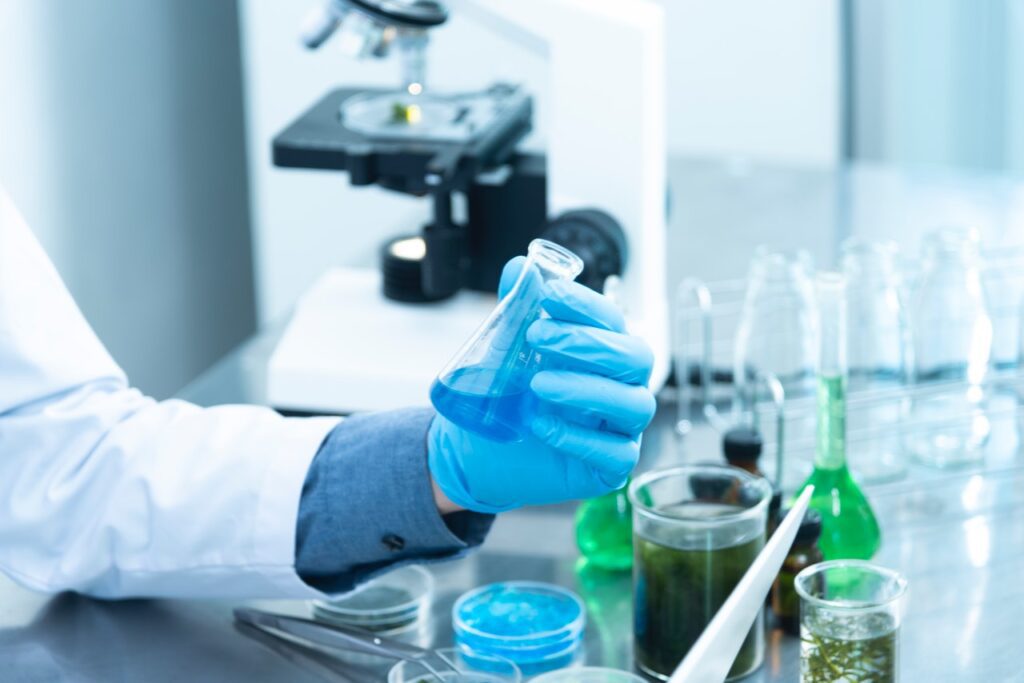Bio.News recently caught up with Dr. Debbie Yaver, Chief Scientific Officer (CSO) of Nature’s Fynd. Nature’s Fynd is a Chicago, Illinois-based food tech company that grows Fy Protein™ and makes it into various foods.
Fy—a versatile fungi
Fy is a nutritional fungi protein which contains all nine essential amino acids. Nature’s Fynd uses its fermentation technology to grow this protein with just a fraction of the resources needed for animal protein sources.
Dr. Yaver joined Nature’s Fynd a little over two years ago. As Chief Scientific Officer, Dr. Yaver heads up research and development for the company. Nature’s Fynd is a biotechnology company which uses filamentous fungi to grow a protein-rich ingredient. In 2009, one of Nature’s Fynd’s co-founders was doing research for NASA on extremophiles, which led him to Yellowstone National Park’s hot springs. He then isolated and discovered a remarkable microbe which he later named Fusarium strain flavolapis, according to Dr. Yaver.
At first, their scientists studied the potential use of fungi in biofuel production, but as the price of oil came down, the fungi was found to be useful in creating a great deal of protein, per Dr. Yaver. Therefore, the use of fungi transitioned to focusing on protein production, which is what Nature’s Fynd does today.
A diverse range of products
“Right now, we use it to produce [food products] we have in the market at Whole Foods Market, Sprouts Farmers Market, and a couple of smaller retail outlets,” Yaver told Bio. News. The company has two different non-dairy vegan cream cheeses, an original and a chive and onion version. Additionally, Nature’s Fynd produces a vegan breakfast patty, according to Yaver. “We also have a very large product innovation pipeline. And we’ll be launching some new products early next year,” Yaver pointed out with enthusiasm for the future product offerings of the company.
Sustainably feeding the world
“Our focus is really on this challenge facing the world right now, to feed the 9 billion or 10 billion people on Earth in 2050. We want to do this, in a sustainable way, because [relying primarily on animal protein] is not sustainable and is not good for the planet,” Yaver told Bio.News.
In her more than 28 and half years in the biotech sector, Yaver has been motivated by a “focus on sustainability,” and she says that her work at Nature’s Fynd is “just another way to have an impact on helping to mitigate climate change by feeding people in a sustainable way.”
The Rosalind Franklin Award
Back in 2014, Dr. Yaver was the inaugural winner of the BIO Rosalind Franklin Award to honor her contributions to the biotechnology sector as a pioneering leader in the field. Reflecting on this accomplishment, Dr. Yaver told Bio.News that, “winning the inaugural award, and one that’s named after [Rosalind Franklin] was quite humbling, and to this day is still quite humbling.” Yaver went on to say that, “I appreciate the fact that BIO decided to create an award for a woman leader in biotechnology.”
“When I joined the industry, there were many times where I was the only woman in the room. And what is really important to me, and what I’ve enjoyed seeing over the years since I won the award, is more and more diversity in the industry,” Dr. Yaver told Bio.News. “We still have a long way to go, whether you’re talking about women in leadership positions or [members of] underrepresented minorities, I firmly believe that the more diverse of a group of people that you have working on solving a challenge, or to commercialize something, or invent something new, the more the diverse the team is, the better chance you have of succeeding,” Dr. Yaver said.
As Dr. Yaver continues in her career, she wants to be sure that she is “helping others to also advance and move into the leadership roles that they desire.” Dr. Yaver’s desire to give back and help others in the biotech sector is in complete alignment with why she received the inaugural BIO Rosalind Franklin Award.
The role of government in funding early innovation
When asked about the role of government in funding biotech research, Dr. Yaver opined that, “early innovation is important, and it’s hard to get venture money to cover. There’s no doubt that government public funding plays a big role in that, and it’s critical that the U.S. [government] continues to do that.”
According to Dr. Yaver, public-private partnerships are essential to future biotech breakthroughs. Ultimately, having the government and private sector “work together” in the early days of a biotech venture is often essential to success, which can benefit society at large.
“In awe all the time”
Reflecting on her time in the biotech industry, Dr. Yaver said, “I’ve been really surprised at the rapid pace of innovation.” Regarding the progress of a variety of scientific breakthroughs in her lifetime thanks to the biotech sector, Dr. Yaver remarked, “I’m in awe all the time.”




